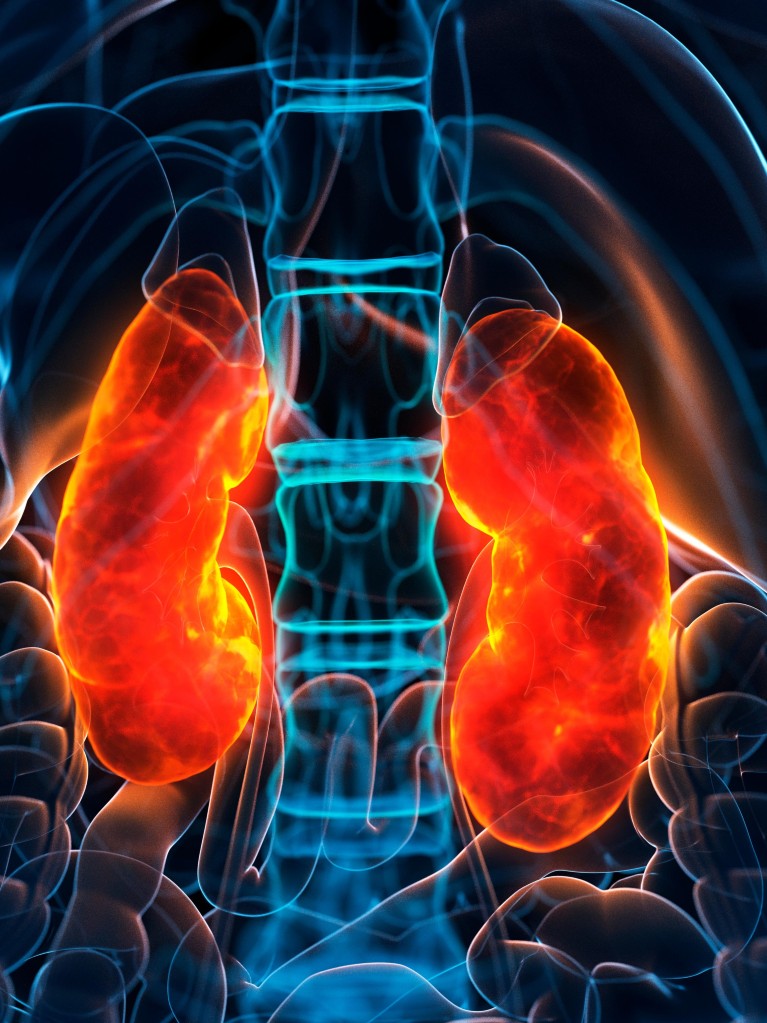
Diseased kidneys, conceptual illustration - stock illustrationCREDIT: SEBASTIAN KAULITZKI/ SPL/ GETTY IMAGES
A study has identified a genetic variant that significantly raises the risk of chronic kidney disease (CKD) in West African populations. Published in the New England Journal of Medicine,1 the study revealed the APOL1 gene variant2 which is common in nearly a third of people in Ghana and Nigeria, boosts CKD risk among people of West African descent.
Known to be protective against3 sleeping sickness, the variant has been proven to pose a health risk, particularly for those two copies, who face up to a 25% higher CKD risk. The study, of more than 8,000 participants from Ghana and Nigeria, also found that even one variant increases CKD susceptibility, contradicting earlier findings in African-American populations that associated risk primarily with dual variants.
The study highlighted the need for early screening, especially as CKD in Africa is often diagnosed late. Factors like high rates of hypertension, diabetes, and the APOL1 genetic risk further worsen the population-wide CKD outlook. treatment options (dialysis and transplants) remain limited and costly.
The study emphasises the need for genetic screening and early intervention in a region already burdened by high CKD rates. The 2023 Global Kidney Health Atlas4 highlighted a complex landscape for CKD in sub-Saharan Africa, where the prevalence stands at 4.2%, among the lowest globally. The region however faces profound challenges in CKD treatment and prevention. Access to essential diagnostic and treatment facilities is restricted due to economic barriers, geographic limitations, and a critical shortage of healthcare professionals, especially nephrologists. Chronic dialysis availability is strikingly low, with only 15 cases per million population across Africa—the lowest globally. Dialysis services are scarce, and physician density is also extremely low, with a severe shortfall in specialists for kidney care. Economic constraints affect 85% of countries, and geographic isolation remains a substantial barrier, preventing timely treatment for many patients.
“This genetic insight highlights CKD’s complex interplay of genetic and environmental factors in West Africa,” Akinlolu Ojo, study co-author, told Nature Africa. “This is also a call to our government and our communities to support our scientists in Nigeria and Ghana to be able to continue to do cutting edge research."
